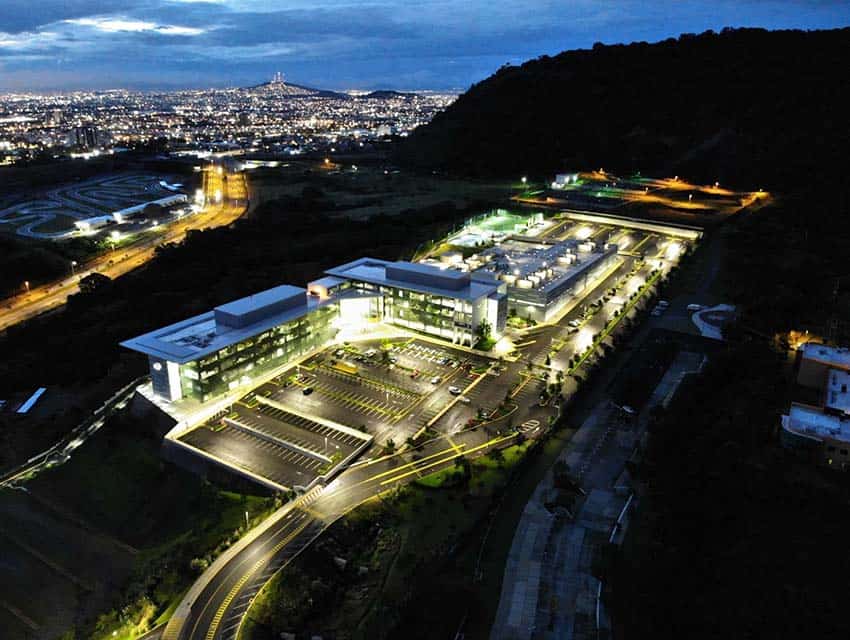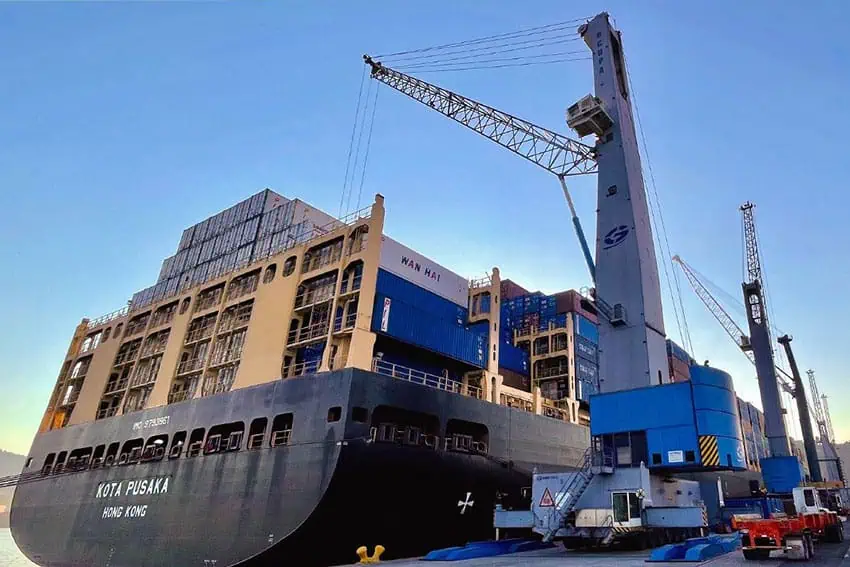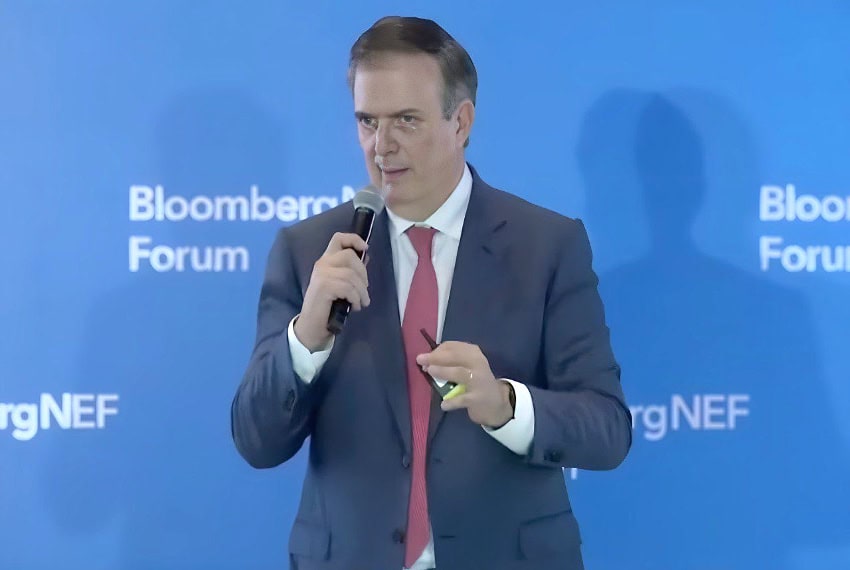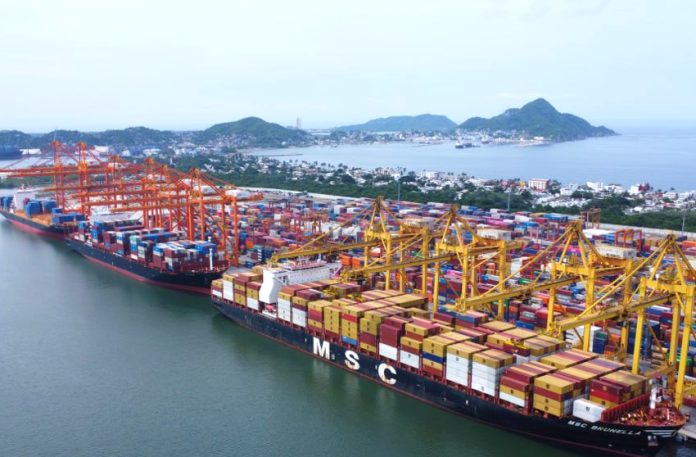In late July, Finance Minister Rogelio Ramírez de la O pointed out that Mexico’s imports from China far exceed its exports to the East Asian nation, and declared that Mexico needs to review its trade relationship with the world’s No. 2 economy because it isn’t “reciprocal.”
He also said that Mexico has “great opportunities to produce more,” before asserting at the end of July that replacing just one-tenth of Chinese imports with products made in North America would significantly boost economic growth in Mexico and the United States.

Now, as Mexico seeks to reduce dependence on Chinese imports, the new federal government “is asking some of the world’s biggest manufacturers and tech firms operating in the country to identify Chinese products and parts that could be made locally,” according to The Wall Street Journal (WSJ).
The Journal spoke with Mexico’s Deputy Economy Minister for Foreign Trade Luis Rosendo Gutiérrez Romano, and included his remarks in an article published on Tuesday under the headline “Mexico wants to curb Chinese imports with help from U.S. companies.”
Gutiérrez, whose appointment was announced last week, told the WSJ that the administration led by President Claudia Sheinbaum wants U.S. automakers and semiconductor manufacturers, as well as large aerospace and electronics companies, to substitute some goods and components made in China, Malaysia, Vietnam and Taiwan.
“We want to focus on supporting our domestic supply chains,” he said.

The federal official told the Journal that talks with foreign companies to date have been informal.
The newspaper reported that “one person familiar with the government’s plan said that some companies haven’t agreed to any specific goal around import substitution and that discussions are part of the Economy Ministry’s aspirations to strengthen domestic supply chains in key sectors such as the semiconductors industry.”
The WSJ noted that the Mexican consulting company Empra said in a note to investors that the proposed measures will be focused primarily on China, a country with a huge manufacturing sector that produces goods well in excess of what can be sold locally.
China’s exports to Mexico — among which are raw materials, capital goods, consumer products and cars — have surged over the past decade. A significant portion of the Chinese imports go to U.S. companies in Mexico, including ones that operate in the automotive, semiconductor and aerospace industries.

Separately, massive Chinese-operated wholesale centers filled to the brim with consumer products made in the East Asian economic powerhouse have recently proliferated in the historic center of Mexico City.
Citing Mexican government data, the WSJ said that China’s exports to Mexico now account for 20% of the country’s total imports. Some experts doubt that Mexico has the capacity to replace a significant portion of those imports.
In the United States, there is particular concern about the growing presence of Chinese-made “connected cars” in Mexico, as well as Chinese automakers’ plans to open plants here.
While Mexico’s government is clearly concerned about the increase in Chinese imports — and imposed new tariffs on hundreds of Chinese products earlier this year — the Chinese government has a different view.
“Bilateral trade and cooperation between Mexico and China have brought tangible benefits to the people of both countries,” the Chinese Foreign said in a statement to the WSJ.
“… Both sides should create favorable conditions for normal economic and trade interactions, as well as jointly maintain the stability of the global supply chain.”

Mexico’s trade relation with China could be a key focus of the USMCA review, which is scheduled to take place in 2026.
There are concerns that Chinese companies are using Mexico as a “backdoor” to the United States — i.e. establishing a presence here in order to ship products tariff-free to the U.S.
But Gutiérrez denied that is the case, telling the WSJ that “Mexico isn’t a springboard from Asia to the U.S.”
Mexico will ‘mobilize’ in favor of North America in the China-US trade war, says Ebrard
At a Bloomberg summit in Monterrey on Tuesday, Economy Minister Marcelo Ebrard acknowledged that there is a “dispute between China and the United States” and said that it is “stronger now than it was a few years ago.”
“And we now have a plan for a route to follow,” he said.
“What will be the main idea, the main design of that route? To mobilize all legitimate interests in favor of North America,” said Ebrard, who was foreign affairs minister for 4 1/2 years during the 2018-24 presidency of Andrés Manuel López Obrador.

He also said that the federal government is looking at “how we can reduce all the imports we have, that is, to increase domestic content in any way we can.”
Ebrard said that Mexican content in the country’s manufacturing exports is currently less than 20%. He said that the government will work with individual companies as part of a strategy to encourage suppliers and parts producers to relocate to Mexico.
“Our mission is not just to increase our market share, but to increase what is produced in Mexico,” he said.
Mexico’s former ambassador to China, Jorge Guajardo, told Mexico News Daily in July that the most pressing and important task for Ebrard as economy minister would be to impose higher tariffs on Chinese imports to protect Mexican industry.
No new tariffs have been announced yet, but the federal government does appear determined to reduce Chinese imports — and is doubling down on its commitment to North America, a region from which Mexico derives the bulk of its export revenue.
Prior to her election as Mexico’s first female president, Sheinbaum noted that Mexico and the U.S. are “economically integrated” whereas “there is no free trade agreement with China.”
“… The relationship with China exists and it has to continue existing, but the agreement with the U.S. has to be maintained and strengthened as well,” she said of the USMCA free trade pact, which also includes Canada.
With reports from The Wall Street Journal, AP and EFE
